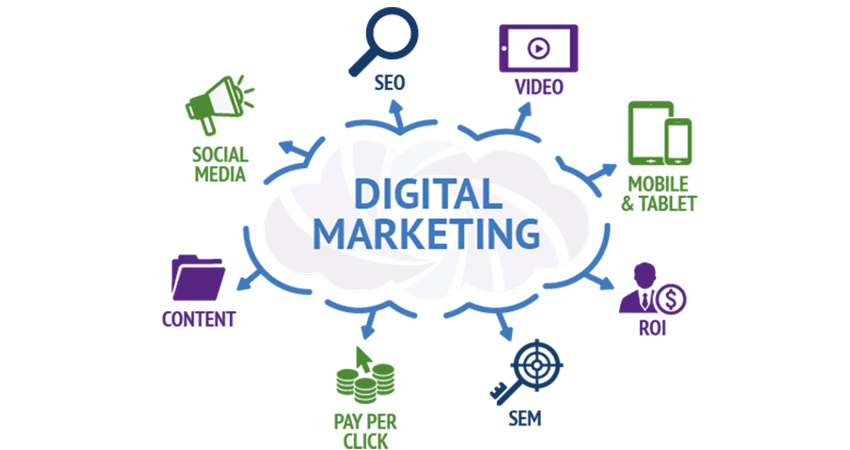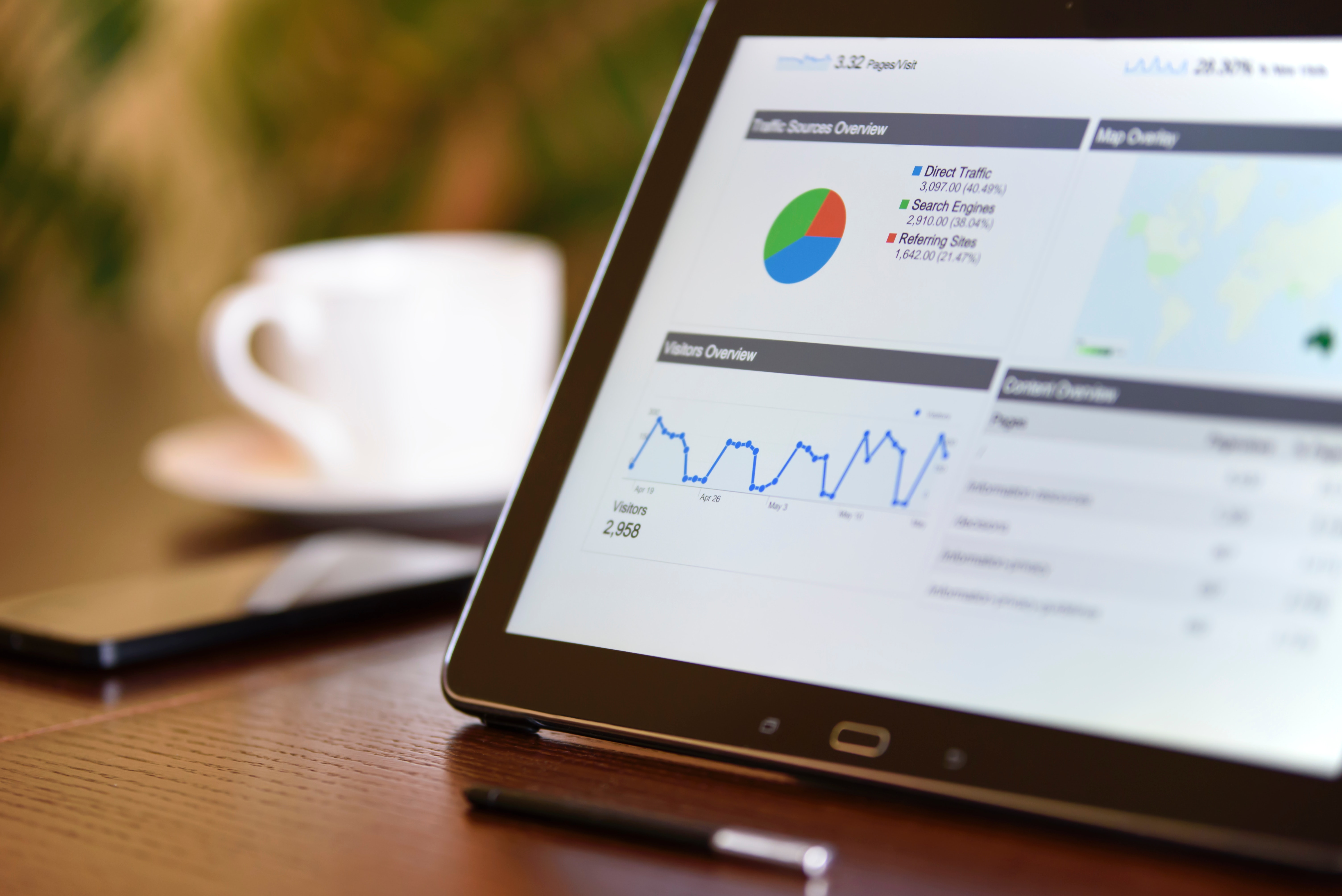Digital marketing is a must; whether your business is a global powerhouse, a niche online store, or a local brick-and-mortar enterprise.
In 2019, the number of people finding websites through organic search is down; however, paid search and social media referrals are up, making it more important than ever to have a strategy that works.
Rather than go it alone, a lot of us spend big for experts and agencies. Although some agencies may talk big, some simply don’t deliver on results.
Beyond the jargon of outreach, ROIs, and sales funnels, business owners need to know what digital marketing “success” actually looks like and how they can see if it measures up.
In this blog, I’ll outline five questions you can ask yourself when things aren’t going your way. With a bit of reflection, you can uncover why your digital marketing agency isn’t succeeding and take charge of their future success.

Did you set clear objectives at the start?
You can’t scrutinize a journey if you don’t know where you want to end up. Before implementing any strategies at all, your agency should ask what your goals are.
Do you want to:
- Increase sales through your website?
- Boost your PPC or referral conversions?
- Increase your social media following?
- Up your domain authority or search engine rank?
With your targets in sight, you can trace back the steps so far and ask whether your agency’s actions are likely to bring you closer to your goals.
Let’s take domain authority as an example. If boosting your DA is your goal, but your agency’s strategy doesn’t include link-building, it will be pretty clear why they’re off-track.
Did they manage your expectations or promise you the earth?
A good digital marketing agency should be honest about their capabilities and manage your expectations. You might hear mantras on the web such as “it takes at least a month to see results,” but this isn’t the case for everyone.
Most of these statements are based on averages.
How quickly you will see improvement will depend on:
- Your business’s reputation before the campaign
- How dominant and strong your competitors are
- What industry you’re operating in
For some, it might take a few weeks and for others a few months. Your agency should give you realistic estimates based on your specific circumstances.
Be very wary of any agency that harps on about “instant” results. I hate to plug an overused phrase but: if it seems too good to be true, it probably is!
Did they tell you how to track progress?
Whatever it is that you want to achieve, your agency should tell you exactly how they will make it happen and how you can track their progress.
A good agency won’t shy away from being monitored. They’ll be transparent and tell you how to watch for change.
If they’re being plain opaque, they either don’t expect to see results or are using dodgy tactics that you would not approve of.
Do you know what success looks like?
Both dodgy tactics and lame duck strategies are easy to spot if you know where to look.
I get it! You’ve hired an agency precisely so you don’t have to deal with the metrics and processes. They’re the experts and you’re probably, well… not.
A little bit of knowledge goes a long way in this industry. Armed with a few simple concepts, you can check your agency’s progress and save yourself both money and time.
Website metrics to watch
Regardless of your goals, a good digital marketing strategy on any of your platforms should result in some movement in your website’s key metrics. It’s where most of your advertising points to and it’s the best place for selling your products and services.
Using Google Analytics (or whatever you prefer), check up on the following metrics every couple of weeks:
Total visits
This mercilessly self-explanatory metric indicates the total number of visits to your website. It should steadily increase if your digital marketing campaign is working.
Bounce rate
A fun name for a not-so-fun concept. It indicates the number of people who click through to your website but promptly leave. If it increases, a couple of things could be up:
- People are not getting what they expect when they click through to your site (e.g. your agency is using adverts that are irrelevant to what you do)
- Your visitors are being paid to click through to make it look like you’re getting traffic (they’re not actually interested, so will promptly leave)
Time on site
Does what it says on the tin: measures the amount of time each user spends on your website. In a similar fashion to bounce rate, it indicates whether people are coming to your site for the right reasons. More time on site equals more effective marketing.

Organic traffic
Not a wholesomely grown queue, but the number of people finding your site through search engines queries rather than referrals like adverts, paid link mentions, and PPCs.
Social traffic
An easy one to remember because it refers to people who found you through social media channels. Your social traffic should increase, especially if your campaign is social-focused, or if your agency has invested in Facebook ads.
Total conversions
Another delightfully intuitive term. If your agency has set up a “goal” in Google Analytics to track specific conversions (people dropping in on your website who convert to sales, newsletter signups, etc.), you’ll be able to see the rate at which they convert. Similarly to bounce rate and time on site it indicates the quality of your leads (traffic).
Be aware that most of the above will fluctuate day to day and week by week. Ignore short-term change and concentrate on consistent trends.
Bonus tip: before employing an agency to drive traffic to your site, make sure your site can handle the extra attention. The last thing you want is to have a successful or viral campaign put to bed by an inadequate free hosting plan or an under-optimized web page.
What is the reaction on your social channels?
Did the little voice in your head just say, “what reaction?” It’s unlikely your campaign is having much effect.
Your campaign will probably target social channels (which it really should do) and the impact should be visible. If it’s not, either nothing’s happening or your agency’s strategy is having little effect.
If they are getting results, you should notice a rise in your followers as well as an increase in both the quantity and quality of interactions on your targeted channels.
It’s no secret that followers and likes can be bought — and for pretty cheap, too. If your digital marketing agency updating you with impressive numbers, but you’re seeing a few extra comments, they may not be going about it the right way.
Throughout your campaign, you should be spending time on your channels looking through recent movements, answering comments and generally getting to know your crowd. If something doesn’t feel right, it’s probably not.


